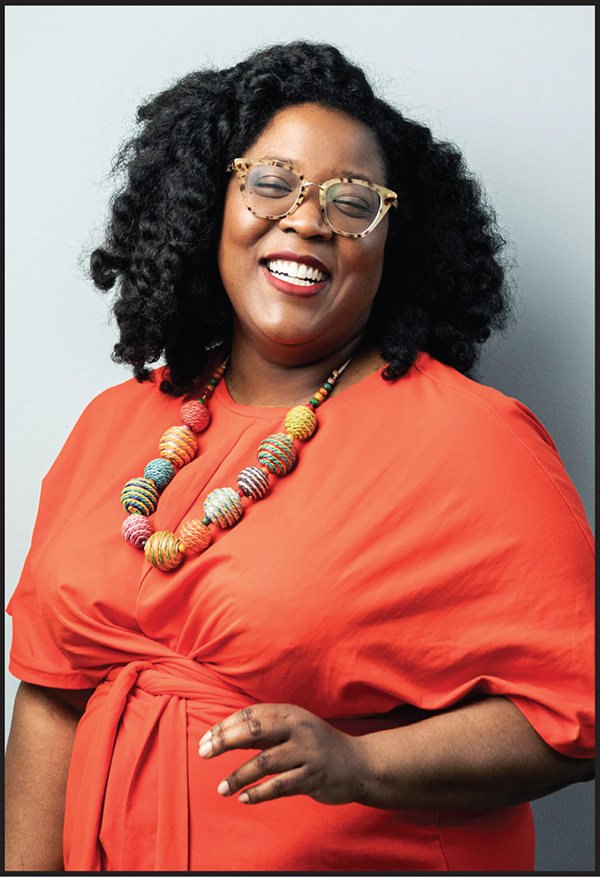Christina Fuller-Gregory | Movers & Shakers 2021–Advocates
“If you want to see change, find a way to be a part of it,” says Christina Fuller-Gregory. She honed her knowledge of equity, diversity, and inclusion (EDI) best practices as part of the 2017 ALA Emerging Leaders cohort’s Advancing Diversity in Public Libraries project, and at Spartanburg County Public Library (SCPL), SC, developed the SCPL EDI Lexicon, a glossary that defines common social justice terminology for library workers.

CURRENT POSITION
Assistant Director of Libraries, South Carolina Governor's School for the Arts and Humanities, Greenville
DEGREE
MLIS, University of South Carolina–Columbia, 2011
FAST FACT
Fuller-Gregory is a classically trained singer with a background in musical theater.
FOLLOW
@CFGWhiz; ala.org/pla/initiatives/edi
Photo by Eli Warren
Passion for Justice
“If you want to see change, find a way to be a part of it,” says Christina Fuller-Gregory. She honed her knowledge of equity, diversity, and inclusion (EDI) best practices as part of the 2017 ALA Emerging Leaders cohort’s Advancing Diversity in Public Libraries project, and at Spartanburg County Public Library (SCPL), SC, developed the SCPL EDI Lexicon, a glossary that defines common social justice terminology for library workers.
Now Fuller-Gregory is assistant director of libraries at South Carolina Governor’s School for the Arts and Humanities, and serves as cochair of the Public Library Association Task Force on Equity, Diversity, Inclusion, and Social Justice (EDISJ). Head librarian and nominator Katie Dover-Taylor says, “Christina’s passion for justice and her commitment to create change to advance equity, diversity, and inclusion in the field of librarianship [are] unparalleled.”
A frequent contributor to the “EDISJ Matters” column in Public Libraries magazine, Fuller-Gregory continues to impact librarianship by sharing her knowledge in publications and presenting at conferences. Her plans include becoming a public library director to affect the hiring and retention of BIPOC (Black, Indigenous, people of color) library workers. “For me, the change I wish to see are libraries that are fully committed to making space and giving voice to BIPOC communities, both internally and externally. Wherever I’ve worked, I’ve found opportunities to actively engage in moving the needle in these areas.”
RELATED
ALREADY A SUBSCRIBER? LOG IN
We are currently offering this content for free. Sign up now to activate your personal profile, where you can save articles for future viewing










Add Comment :-
Comment Policy:
Comment should not be empty !!!